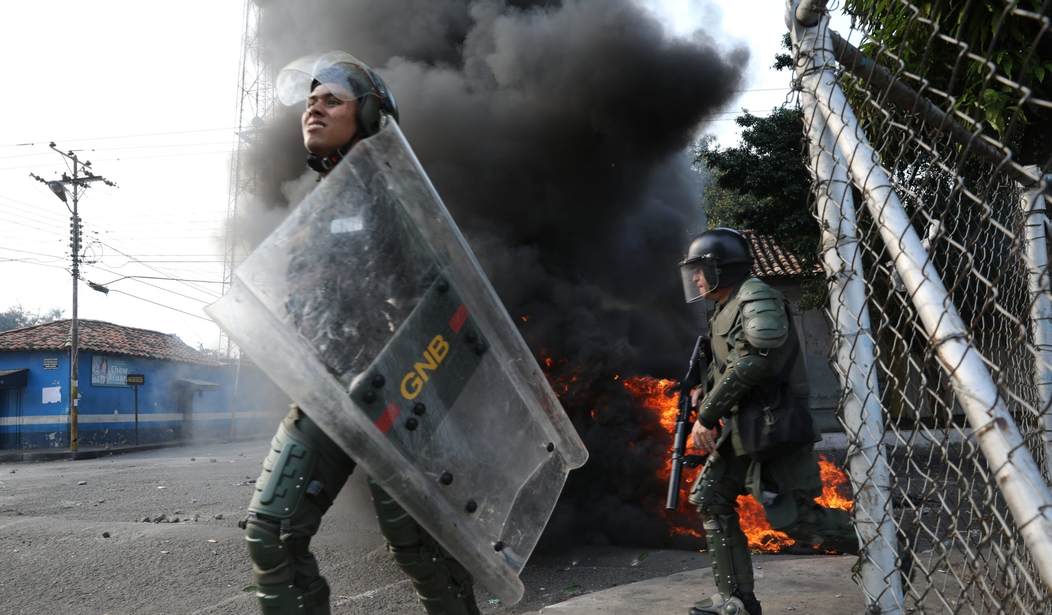I have long said that the most important human instrument for perceiving when a revolution is on the verge of success is the nose. It’s not the mind, as you can easily see by the “intelligence community’s” repeated failure to see one coming. For a revolution to succeed, the current leader must sense that his or her time has come, that the forces of history have turned against him, and that he or she had best arrange a safe haven, or make a deal with the revolutionaries, instead of dedicating all efforts to prolonging his or her rule, and the dominating system.
You can’t measure this sort of thing, you can only smell it. When the shah was overthrown by the Khomeini revolution, he clearly lacked the will to fight the ayatollah’s followers in the streets, even though top military officers were expecting, and mostly hoping for, orders to put down the demonstrators. But the shah did not want to give those orders, and instead headed off to Egypt. He might well have prevailed, but worried more about his legacy than retaining power.
In like manner, Gorbachev would not use military force against Solidarity in Poland, and he too went quietly. He didn’t have to take foreign refuge, as the shah did, but the end of the Soviet Empire was very much the outcome of Gorbachev’s personal failure, as the many jokes of the time made clear. It is often said that a successful revolution needs a charismatic leader, but I don’t believe Boris Yeltsin fit that bill. The main factor was the failure of will by the sitting ruler and the ruling class.
Most pundits, and, I fear, most policy-makers, don’t see it that way. There’s an awful lot of pidgin Marxism in the air these days. Most of the deep thinkers seem to believe that economic misery suffices to bring down tyrannies, even though there is hardly any historical evidence to support the thesis. The Soviet Union was an economic basket case from day one. All it ever did was fail. But the regime lasted more than seventy years. If misery fuels revolution, why is there no revolution in North Korea? Why was there no Ukrainian revolution when Stalin starved tens of thousands of them? Why was Castro not brought down?
So color me unconvinced when I hear that revolution is imminent in Venezuela and Iran. It doesn’t smell that way to me. I see tyrants prepared to fight, and troops loyal to them.
If there’s a revolutionary smell these days, it has to do with ideology, not tyrants’ resolve. By the time Gorbachev’s moment came, it was hard to find many Soviets who believed in Communism (he did, but was a rarity). Iran abounds with evidence that radical Shi’ism has lost its appeal. Turnout at Friday prayers is skimpy, mullahs are regularly insulted in the streets, and if Iranians were free, we’d probably see a great revival of Zoroastrianism. Consider these words from Amir Taheri on Twitter:
INTERESTING: Khomeinists like Soleimani and Zarif are trying to recycle themselves as Iranian nationalists because they know that their pseudo-Islamist ideology is bankrupt.
In like manner, the Communism of Hugo Chavez can’t be very popular in Venezuela these days. So Maduro’s continued rule depends on brute strength. He needs the army and the secret police, plus whatever the Russians, Cubans, and Iranians have shipped in.
Which brings us to the repeated winks and nods, hinting at the use of armed force. War has certainly mothered revolutions. Just ask the czar, toppled by Kerensky and Lenin after defeat in the Great War. I can’t imagine we’re going to send fighters into Iran or Venezuela, but others might. Maduro could find himself at war with Colombia and/or Brazil, and we could help his enemies. Ditto for Iran vs. Israel. Life is full of surprises.
The tyrants are in a jam, and Machiavelli pronounced tyranny the most unstable form of regime. I’d welcome stronger odors of rot in Caracas and Tehran, but there are some even so.
I believe we must act. Speeches and sanctions are not likely to suffice. Our allies and the would-be revolutionaries have well-justified suspicions that, when their lives are on the line, the United States will not send in the Marines.
Or even the Air Force. Hope they’re wrong.









Join the conversation as a VIP Member